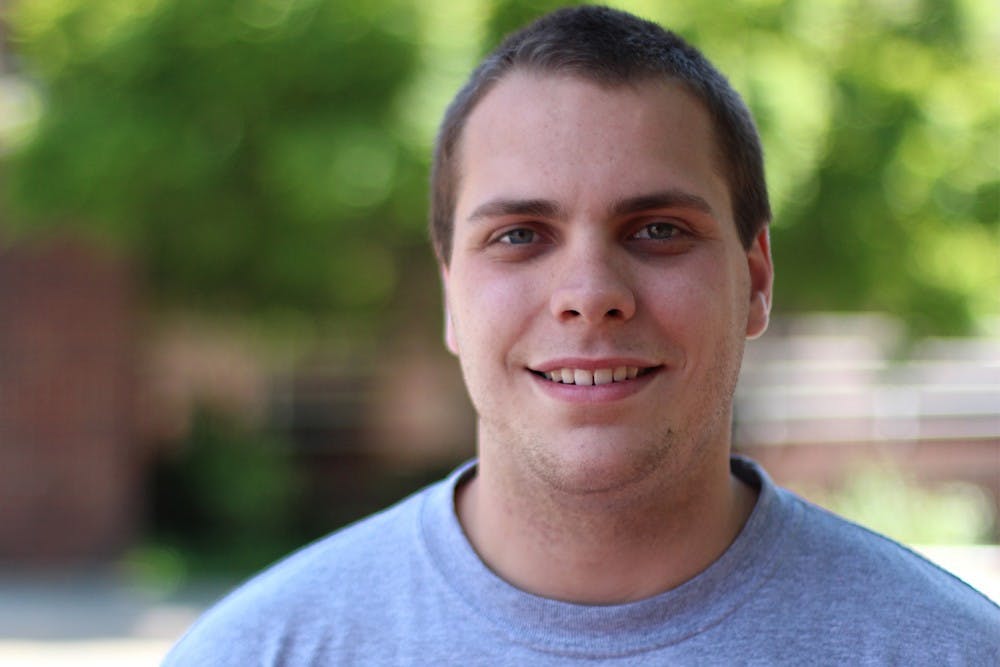Lambden refused to comment about his decision to accept the offer and instead directed all media questions to University spokeswoman, Karen Moon.
Moon said the administration has chosen three finalists with two having formally accepted the offer. However, the University will not announce the Fellows until they have completed the standard hiring process .
But the question that really needed to be answered — and the one that only Lambden could answer — is how long he has known being hired by the University after graduation was a possibility.
Lambden was no ordinary student this past year — he was our student. The student body voted him into that position of access so he would advocate for our needs.
We did not elect him to become an extension of South Building.
It calls into question some of the actions Lambden took during the year, such as when he released a letter of support for the administration when the Mary Willingham story broke.
Why would the president of the student body lend his unquestioning support to the University’s leaders without gaining an understanding of Willingham’s data first?
He did not have adequate information to draw the conclusions that he did about the biggest controversy of the year, yet he immediately leapt to the defense of Folt and Executive Vice Chancellor and Provost Jim Dean.
And during one of the scariest moments of the year, when an armed man ran from Alpine Bagel up to Franklin Street , Lambden was with Chancellor Folt.
I know because he called our former editor-in-chief to share Folt’s opinion. Conveniently, opinions that were the same as his own.
Both were concerned with the situation because we released information that the suspect had been apprehended before the Department of Public Safety had given an all clear. But, the two also believed that we did an excellent job finding and communicating information effectively.
It’s funny to me that on both the approvals and the censures, Lambden was of the same mindset as Folt.
To get the day's news and headlines in your inbox each morning, sign up for our email newsletters.
When the student body president is beholden to the administration, as one would be if looking for future employment, then he or she can easily lose sight of whose opinions truly matter.
And with as much gravity as Chancellor Folt’s opinions carry, they should in no way eclipse those of the student body.
Folt relied so much on Lambden because it was her first year on the job — and what a change of pace it must have been for her.
Folt came from Dartmouth College, a private institution in the heart of Yankee territory that enrolls about one fifth the number of students UNC does. In order to acclimate, she spent her year touring and meeting the members of the large and diverse campus.
And whether it was attending games or helping to coordinate meet and greets with the students, Lambden did his part in smoothing out the transition.
It was a wise move, but one that should be rehashed in light of his current employment status.
Lambden was able to successfully advocate for students on many occasions.
He sat on the University’s sexual assault task force , helped create his own task force to audit all student fees and he was even able to expand the influence of the student body president on the Board of Trustees by attending more committee meetings than predecessors.
Those moments of student advocacy should not be outweighed by administrative adherence — the former should always be paramount.
It is my sincere hope that Andrew Powell will not follow Lambden’s unethical move into University administration.
Powell has already shown a great interest in reforming higher education.
He was employed by Coursera , a for-profit educational technology company, and he has incorporated many of the ideas he obtained there into his platform, which is absolutely his prerogative to do as student body president.
He has now seen the way Lambden was able to leverage his influence as student body president right into the inner workings of one of the greatest public universities in America, something that would clearly be beneficial for his mission to reform higher education.
But Powell should not be swayed by the cushy job with its access to UNC’s secrets.
He would do well to remember the promise that he, and every single student body president before him, ran on: to listen to and represent UNC’s students, not its administration.



